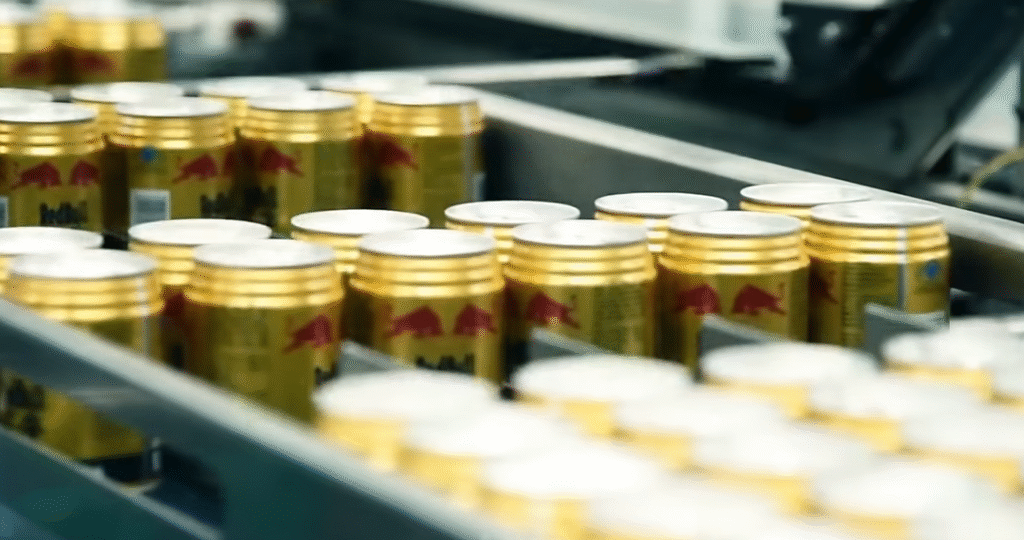Despite not intending to do so, Benjamin Careathers’ lawsuit against Red Bull succeeded in challenging a cultural icon. He shook the advertising industry by forcing one of the most well-known beverage companies to settle for $13 million with the straightforward allegation that the brand’s iconic slogan was deceptive.
For many years, the well-known adage “Red Bull gives you wings” was regarded as a lighthearted exaggeration. Stick figures with cartoon-style wings sprouting were used in commercials; the humor was always lighthearted. In contrast to other caffeinated drinks, Careathers contended that the slogan implied improved performance, sharper concentration, and superior energy. Surprisingly, scientific comparisons showed that the amount of caffeine in a basic cup of coffee was frequently higher. Customers who had been convinced to pay more found this realization especially upsetting.
Red Bull was faced with a choice when the case entered U.S. courts in 2013: either settle quickly and move on, or fight the claim for years. The business chose the latter in 2014, giving qualified customers the option of receiving $10 in cash or $15 in vouchers. Notably, no proof of purchase was needed in order to receive compensation for cans purchased between 2002 and 2014. In addition to resolving the case, this incredibly successful strategy sparked a cultural discussion about marketing ethics.
Benjamin Careathers – Key Information
| Detail | Information |
|---|---|
| Name | Benjamin Careathers |
| Known For | Plaintiff in Red Bull “gives you wings” lawsuit |
| Case Filed | 2013 (United States) |
| Case Outcome | $13 million settlement in 2014 |
| Main Claim | Red Bull’s slogan was misleading and constituted false advertising |
| Legal Representation | Class-action lawsuit |
| Compensation | $10 cash or $15 voucher to U.S. consumers (2002–2014 purchases) |
| Industry Impact | Raised debate on truth in advertising |
| Broader Connection | Compared with lawsuits against McDonald’s hot coffee and Subway footlongs |
| Reference | CBC News – Red Bull settles false advertising lawsuit for $13M |

Many onlookers chuckled at the ridiculousness at first glance. The idea of someone filing a lawsuit for not actually developing wings was ridiculed in headlines. However, as more information became available, the case appeared remarkably similar to other once-laughed-at lawsuits that eventually raised significant issues. Take the McDonald’s hot coffee case, in which an elderly woman was served scalding coffee and sustained third-degree burns. Initially dismissed as pointless, that lawsuit marked a sea change in corporate accountability. In a similar vein, Careathers’ lawsuit brought attention to the distinction between advertising deception and entertainment.
It was not just fast food that was compared. Legal experts drew comparisons to Pepsi’s notorious “Harrier Jet” campaign, in which a commercial suggested that consumers could exchange their points for a military jet. This is exactly what one eager customer tried to do, but the courts rejected his claim as irrational. Red Bull demonstrated a very clear understanding of risk by choosing to settle rather than take the chance that puffery would be a recognized defense. The business avoided possible years of expert testimony, discovery, and brand damage by reaching a settlement.
The cultural response was intriguing. Images of settlement checks were widely shared on social media; some were proudly shared as evidence of consumer power, while others were disparagingly shared as proof of opportunism. Beneath the humor, however, was a profound change: consumers came to understand that even the biggest companies could be held responsible by group action. Strategic class-action lawsuits gave regular consumers a very flexible tool to demand truthfulness in advertising.
Additionally, the settlement caused the beverage industry to reflect. Companies that sell energy drinks have long positioned themselves as lifestyle curators, connected to extreme sports, music, and youth culture, rather than just suppliers of caffeine. Perhaps more than any rival, Red Bull had made a fortune from its exhilarating brand. But when examined through the prism of quantifiable science, the lawsuit revealed how flimsy such narratives are. Once bold marketing suddenly appeared vulnerable.
Ironically, though, Red Bull’s brand strength was barely weakened. Sales actually increased in the years that followed, demonstrating that consumer indignation does not always translate into long-term harm. Surprisingly, the controversy even increased the company’s visibility, keeping its product at the forefront of public discourse. According to some industry experts, controversy could inspire just as much loyalty as praise, demonstrating the incredibly effective nature of contemporary branding.
The case did not, however, disappear without a trace. Legal experts started citing Careathers’ triumph as proof that puffery had its limitations. Businesses were no longer able to defend themselves against accusations of deceptive advertising by using humor alone. Courts may request evidence when slogans veered into quantifiable performance promises. The discovery that coffee occasionally contained more caffeine than Red Bull’s product was especially detrimental to the company.
The symbolism of the lawsuit was what made it so enduring in the public consciousness. The topic shifted from an energy drink can to the right of the average consumer to expect honesty. Whether it was energy drinks overstating their benefits or Subway’s “footlong” sandwiches falling short of twelve inches, the idea was the same: while exaggeration may be amusing, it cannot be allowed to undermine trust.
Following the settlement, Benjamin Careathers himself became less well-known. He just took a step back, his name permanently linked to the case that clipped Red Bull’s wings, in contrast to celebrity plaintiffs who use lawsuits to gain notoriety. However, his role continues to serve as a crucial reminder of how one person can start discussions that reverberate throughout industries by contesting a slogan.
The scrutiny of advertising has only increased in the ensuing years. Customers have grown noticeably more dubious, regulators have acted much more quickly, and businesses have become remarkably circumspect in the wording of their advertising campaigns due to social media influencer claims and tech company assurances. What Careathers started still has an impact on modern brand communication.

